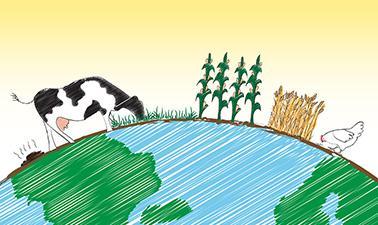MOOC List is learner-supported. When you buy through links on our site, we may earn an affiliate commission.

MOOC List is learner-supported. When you buy through links on our site, we may earn an affiliate commission.
Systems theory, or systems thinking, is a way of understanding and working with the complexity of sustainable food production systems, which requires training in different disciplines and an approach that can address this complexity. This environmental studies course enables participants to apply the principles of a systems approach to food production with a focus on environmental sustainability.
This course is part of the Food Security and Sustainability XSeries Program.
This is why you should sign up
Sign up as a student if you want to acquire knowledge about environmental sustainability and the way systems thinking helps in decision-making in the complexity of food production. After successful completion of both practice and graded assignments related to this course, you will:
- Understand the complexity and diversity of food production systems
- Understand the principles of system analysis and apply it to environmental issues in food production
- Understand evaluation methods for the environmental impact of food production systems in different contexts and levels (e.g. farm, regional and global) Be able to evaluate strong and weak points of different food production systems regarding environmental sustainability
- Be able to contribute to a discussion about environmental sustainability and food production and ask relevant questions
What you'll learn
In this course you will learn about:
- The concept of environmental sustainability and identify the main issues associated with food production
- The basics of systems thinking and understand how the different aspects of a system influence one another and how a system itself is affected by its context
- The relevance of crop and livestock productivity for environmental sustainability
- The environmental indicators and how to measure the environmental impact of food production at farm, village or regional level
- Decision-making and life cycle assessment
- Helpful tools and their strong and weak points
We will analyze production systems at both ends of the spectrum: highly productive systems with relatively high inputs and emissions to the environment, and low productive systems with low input use and depletion of soil fertility. Crop-livestock interaction is a focal point.
MOOC List is learner-supported. When you buy through links on our site, we may earn an affiliate commission.
MOOC List is learner-supported. When you buy through links on our site, we may earn an affiliate commission.
